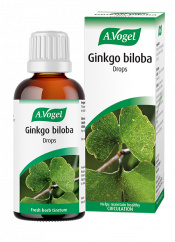How well is your memory working?
Quick and simple tests to assess how well your working memory, short-term memory and long-term memory are working.
Take the testForgetfulness is something that happens to all of us from time to time but, as we get older, there's often the worry that it could be a sign of dementia or Alzheimer's. Find out more about memory loss, as well as how to keep your memory sharp, in today's blog.
Although forgetfulness is something that happens to us all from time to time, it is more than a little disconcerting. To help you understand the issue, this blog looks at:
If you're over the age of 65, forgetfulness is more likely to be a sign of dementia so it's important to talk to your GP who will be able to test for this condition. Unlike forgetfulness, dementia is not an inevitable part of aging and should be addressed by a medical professional.
Do you often lose important belongings such as your keys, or forget why you've gone into a room? Do you regularly forget what you want to say halfway through a sentence?
These are all common signs of forgetfulness that, believe it or not, happen to all of us, particularly as we get older.
Various factors can contribute to forgetfulness, including:
Losing your train of thought during a conversation isn't always indicative of dementia. Instead, this kind of slip of the tongue is what's known as an "attentional problem". This basically means that, the harder we try to resume our train of thought, the more elusive it becomes. Although this does tend to happen more frequently as we get older, it's usually for the simple reason that we're not really so interested in the topic of conversation, or that we are distracted by something else.
Although dementia also causes forgetfulness, it is usually accompanied by other symptoms including problems with mood, language, understanding and movement.
If you or someone you know is becoming increasingly forgetful, it is a good idea to speak to your doctor for advice. Dementia is more common in those over the age of 65 so a discussion is even more important if you're in this age bracket.
According to Alzheimer's Disease International, there are an estimated 35.6 million people with dementia worldwide and by 2050 the number will rise to over 115 million, making it something we really can't afford to ignore.1
There are various lifestyle factors that can aid memory.
First of all, whatever your age, you're more likely to score well in a memory or brain function test if you lead a healthy life so, here's my advice:

Try our Ginkgo biloba drops to maintain healthy circulation and to improve blood flow to the brain.
"Wouldn't be without it."

If you are concerned about memory loss, try not to self-diagnose. The information above is here to offer guidance, but it is not a substitute for the advice of a doctor. Therefore, make an appointment with your GP if you would like a more in-depth discussion on the issue.
Quick and simple tests to assess how well your working memory, short-term memory and long-term memory are working.
Take the testAs the A. Vogel Circulation advisor, I recommend Gingko biloba drops to help maintain a healthy circulation.
Learn moreBy 2050, it's estimated that over 115 million people worldwide will suffer from Alzheimer's, making it more crucial than ever to start taking preventative steps as soon as possible.
Have you forgotten something?Discover the story of Alfred VogelNature is just about the best thing we’ve got!